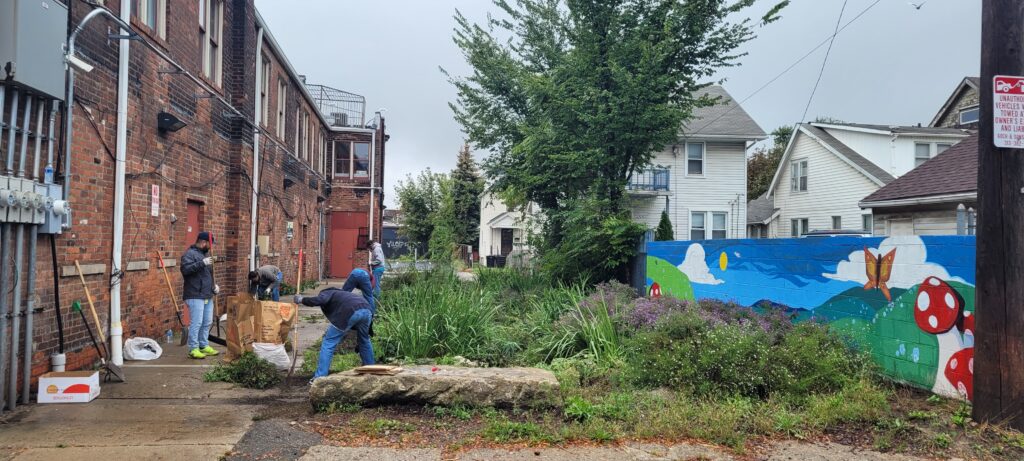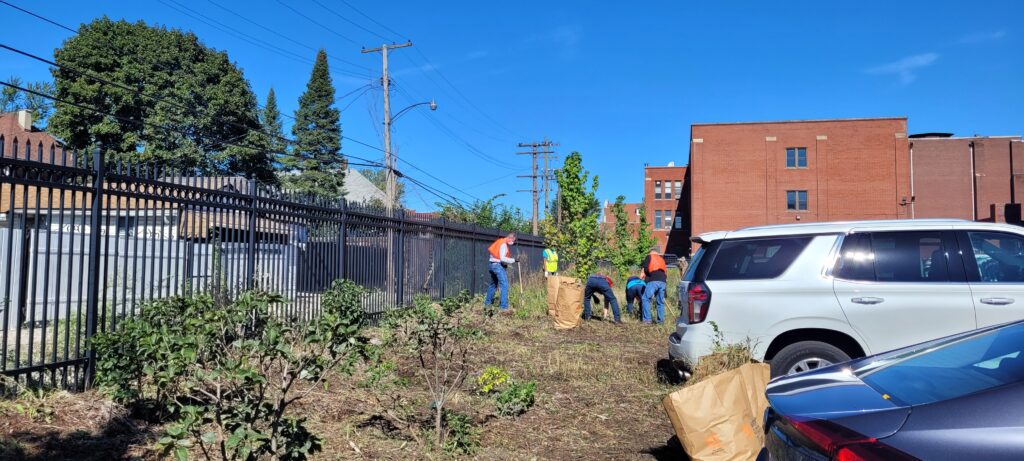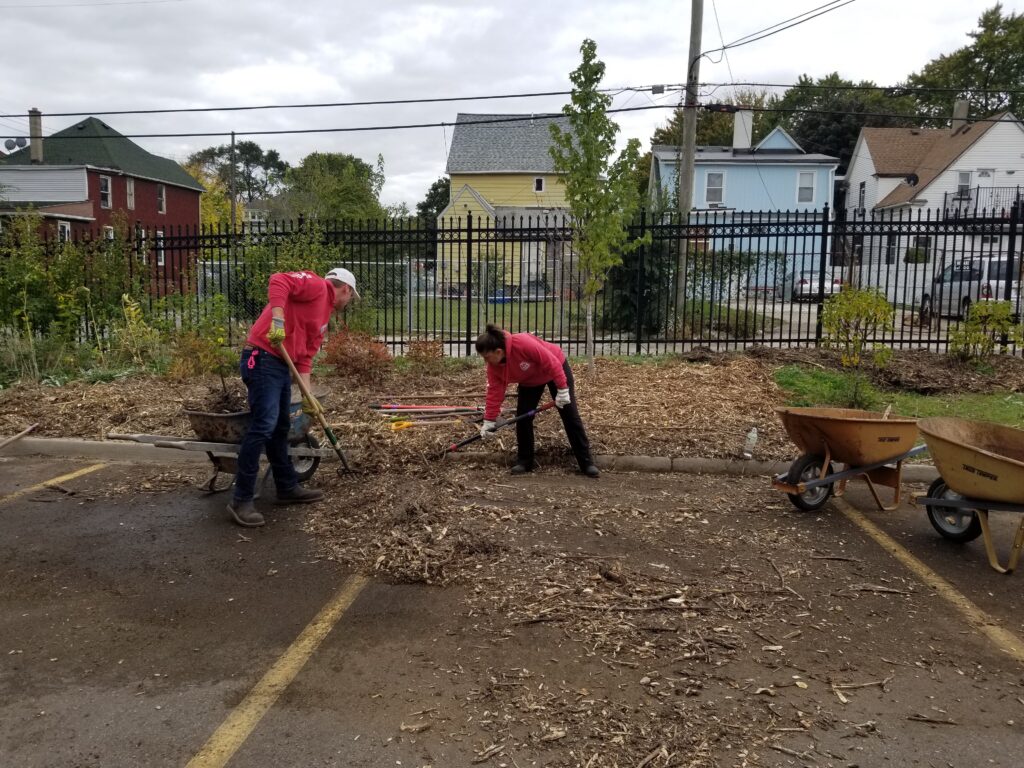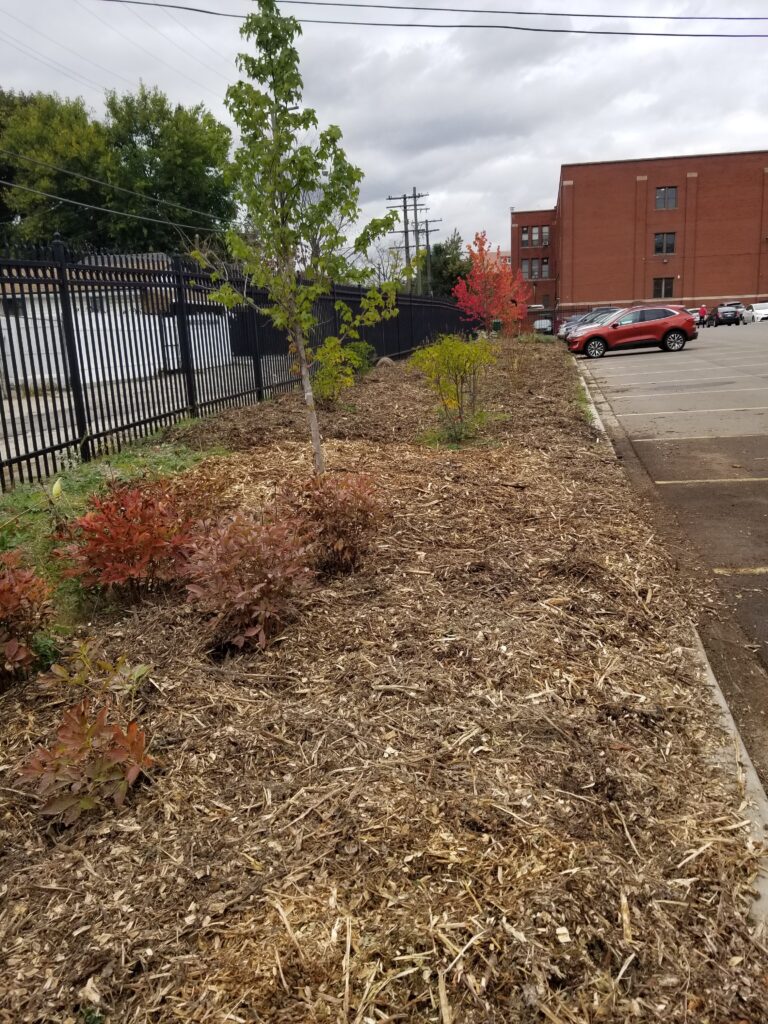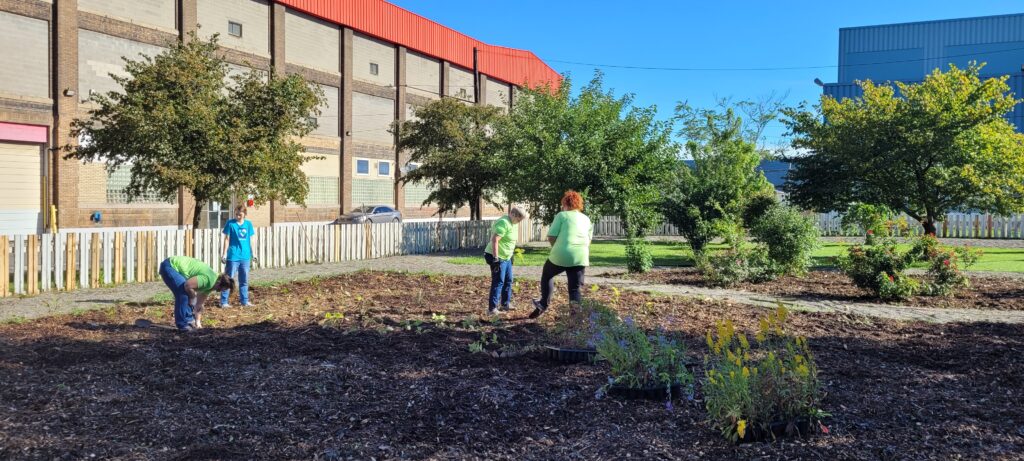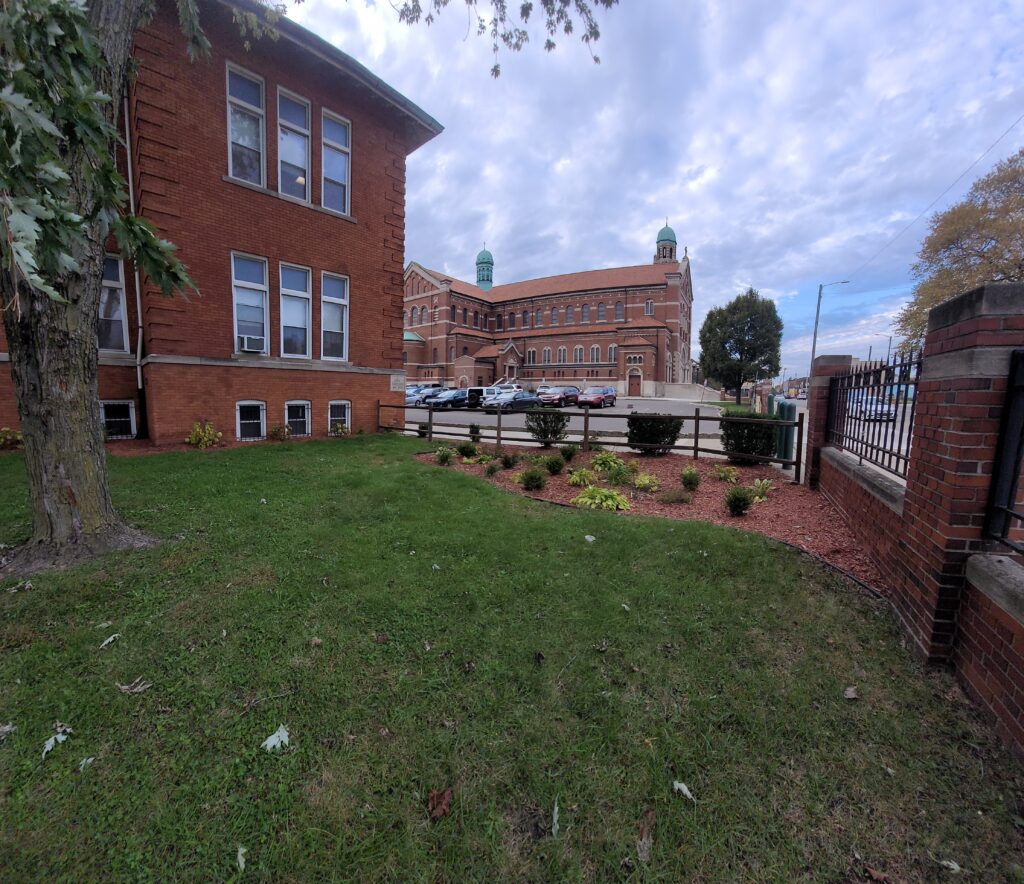Evaluating the Effectiveness of Bioretention Rain Gardens in Removing Pollutants Associated with Tire Dumping and Roadside Pollution
The project: Environmental justice research has shown that low-income neighborhoods and communities of color, such as those in Southwest Detroit, are more likely to experience higher levels of pollution. In Southwest Detroit, residential and commercial areas are in close proximity to ongoing heavy industries and high-volume transportation corridors, increasing concerns about the local air and surface water quality. These challenges are further exacerbated by illegal dumping, with piles of garbage, particularly used tires, frequently dumped in this community. These dumping sites may be accumulating toxic levels of heavy metals that can cause serious health issues such as cancer. This project aimed to identify strategies to transform dumping sites by constructing bioretention areas. Bioretention rain gardens utilize physical, chemical, and biological removal mechanisms to improve stormwater quality before it is discharged into the environment.
The process: Working closely with Southwest Detroit Environmental Vision and other Detroit organizations, this project contributed to the creation of three new rain gardens at Bieniek Park, Holy Redeemer Grade School, and Scarcyny Park & Garden, plus made improvements on existing green stormwater infrastructure projects to establish two additional rain gardens at Detroit Cristo Rey High School and the Southwest Detroit Business Association.
Results: In addition to contributing to the five rain gardens, this project also educated local residents and community organizations through Southwest Detroit Environmental Vision’s engagement in the Land + Water Works Coalition. This promoted a better understanding of the importance of bioretention in addressing poverty and environmental justice inequities through improving the quality of the local environment, reducing residents’ exposure to hazardous contaminants, and adding green space.
Larissa Larsen
Associate Professor of Urban and Regional Planning
U-M Taubman College of Architecture and Urban Planning
Sarah J. Clark
Director of Programs Southwest Detroit Environmental Vision

The stars on the map show the location of five rain gardens in Southwest Detroit supported by a Poverty Solutions 2018 faculty research project.
- Southwest Detroit Business Association rain garden
- GM Cares Week at the Detroit Cristo Rey High School rain garden
- Workers spread mulch at Detroit Cristo Rey High School rain garden
- Detroit Cristo Rey High School rain garden
- Scarcyny Park & Garden
- Holy Redeemer Grade School rain garden

